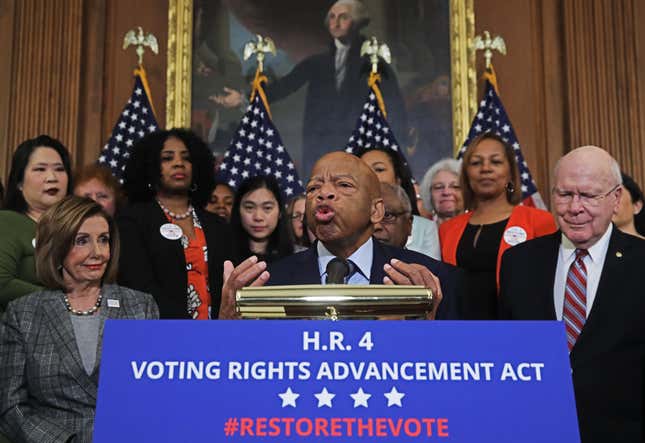
I am a 23-year-old Black man from Cobb County, Georgia, and it cost me $64 to vote in the Georgia primary elections.
Let me explain.
As a recent college graduate working out-of-state before starting law school, I have been voting by absentee ballot since 2016. Until this year, I had encountered few issues in casting my ballot, even in the 2018 midterms, which saw 53,000 voter registrations—70 percent of which were from Black voters—reportedly held up in the Secretary of State’s office (the office held by the then-Republican nominee for governor) one month before the election.
This year, my luck ran out.
The presidential primaries were originally scheduled for March 24, and I submitted my absentee ballot request on February 17. I felt comfortable as I dropped my ballot in the mailbox on March 16, knowing that state election officials had postponed the primary to May 19 due to the COVID-19 pandemic.
Election officials rescheduled the primary again to June 9. On May 26, after seeing a Facebook post by Gwinnett County school board member Everton Blair describing how to check your absentee ballot status online, I decided to do just that. Not seeing confirmation that my ballot—which I had mailed over two months prior—had been received, I immediately called the elections office.
The woman on the other end looked up my information and told me that not only had they not received my ballot, but that they had failed to receive many voters’ ballots when COVID-19 forced their office to temporarily close. She instructed me to submit another request form, in hopes that another ballot could be mailed to me with enough time for me to fill it out and mail it back before June 9, the date by which it had to be received to be counted.
I submitted my second absentee ballot application immediately after hanging up the phone, and I said a prayer.
My ballot finally arrived on June 5, four days before it needed to be in the hands of a Cobb County election official. Express shipping was my only option at that point, so the next morning, I scrambled to fill out the ballot and walked to a nearby UPS store. Finding it unexpectedly closed, I used my phone to locate another store, but without a car, I had to call an Uber—something I had not done during the pandemic.
Once there, I chose the shipping option that would get my ballot to Georgia on June 8, but not trusting the elections office, I arranged for the ballot to be shipped to my family’s home so that my mom could hand-deliver it to the office for me.
“$63.86,” the clerk said.
I paid because I remembered the incalculable price that people like the late Congressman John Lewis had paid, but I also paid because my college degree and well-paying job afforded me the means to do so. I prevailed against voter suppression (having to request and mail an absentee ballot multiple times to have my vote counted), but only because my access to information and resources made that possible.
It has been widely reported that Black Georgians voting in-person faced similarly steep barriers on primary day, from long waits to issues with new voting machines. Disturbingly, those who showed up to vote having requested but never received an absentee ballot were turned away. Even the Republican Secretary of State called these issues “unacceptable.”
Fortunately, our elected leaders can do something about it.
After having recently celebrated the 55th anniversary of the Voting Rights Act of 1965, the US Senate has the opportunity to restore a key provision of that landmark bill that was gutted in 2013 by the Supreme Court. The newly-introduced John Lewis Voting Rights Advancement Act would, among other things, require that any state with a history of voting discrimination within the past 25 years seek federal approval before making changes to its voting procedures.
It is necessary but not sufficient that the Senate consider and ultimately pass that bill. To truly have fair and safe elections, mail-in voting must be improved and expanded (like California did by mailing an absentee ballot to every registered voter), the U.S. Postal Service must be funded, election officials must communicate election changes early and often, automatic voter registration must be implemented (as has been done in New York), and Election Day must become a federal holiday.
The future of our democracy is at stake. I urge our leaders to act while there is still time. Black lives cannot matter until Black votes matter, too.
Gevin Reynolds graduated from Harvard University in 2019 as a Jackie Robinson Foundation Scholar. In college, he interned for the late Congressman John Lewis. Follow him on Twitter at @GevinReynolds.
Join the discussion! The Root is hosting its first-ever, virtual Root Institute, presented by Target, featuring several of the leading minds in our community talking about politics, culture, health, community building and social impact. Subscribe for updates today!



